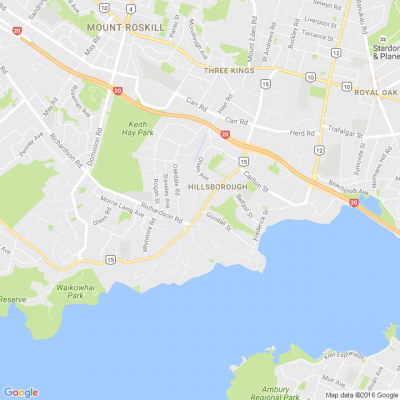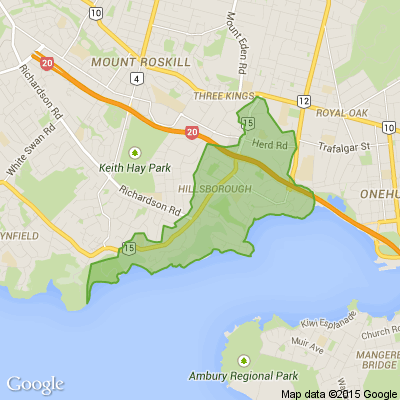The Wild Workplace: Navigating the Management Zoo - Day 23
In the bustling offices of Te Ao Solutions, the team was tasked with launching a groundbreaking product. The journey was set to be one of collaboration and creativity, but the workplace was teeming with personalities straight out of a management zoo. Each animal's behavior became a roadblock, threatening the project’s success. The HIPPO Hiria, the CEO, always had the final say. Her Highest Paid Person's Opinion (HIPPO) dominated every meeting. "My instincts say this is the best way," she declared, overriding the carefully researched proposals of her team. Her voice silenced dissent, stalling innovation.
The ZEBRA
Zane, the marketing lead, was Zero Evidence But Really Arrogant (ZEBRA). He strutted around confidently proposing unproven strategies. “We need a viral campaign! Everyone's doing it,” he insisted, ignoring the data that suggested a different approach.
The WOLF
Wai, the project manager, was always on The Latest Fire Working (WOLF). She spent her days chasing crises rather than focusing on the broader project plan. “No time for meetings — we need to fix this bug now! she’d bark, leaving her team scrambling.
The RHINO
Rewi, a senior board member, was Really Here In Name Only (RHINO). Despite his title, he was detached from the project, offering little guidance. “Just let me know when it’s done,” he said, vanishing after every meeting.
The SEAGULL
Sara, the Senior Executive, fit the Seagull archetype perfectly. She glided into meetings unannounced, loudly criticized the team's progress, and then left as abruptly as she came. “Why is this taking so long? Just figure it out!” she squawked before flying off.
The MOUSE
Moana, a junior analyst, had Muddled Opinions, Usually Swayed Easily (MOUSE). In every meeting, she hesitated to voice her thoughts. “I’m not sure,” she often said, changing her stance based on whoever spoke last.
The PARROT
Pete, an intern, was a Pretty Annoying and Ridiculously Repeating Others (PARROT). He echoed every idea shared in meetings without adding any value. “Yes, just like what Hiria said earlier!” he’d chirp repeatedly.
The DONKEY
Dylan, the data specialist, was Data Only, No Knowledge or Expertise (DONKEY). He brought endless spreadsheets to meetings but couldn’t explain what the numbers meant. “I just pull the data,” he’d shrug when asked for insights.
The Turning Point
The project seemed doomed until a new manager, Tia, joined the team. She observed the zoo-like dynamics and decided to bring order. Tia called for a hui (gathering), where she gently but firmly addressed each personality.
-- To Hiria the HIPPO, she said, “Your voice matters, but let’s ensure everyone feels heard.”
-- To Zane the ZEBRA, she advised, “Let’s base our strategies on evidence rather than instinct.”
-- To Wai the WOLF, she suggested, “We need a clear plan to avoid constant firefighting.”
-- To Rewi the RHINO, she said, “Your involvement is crucial for guidance and support.”
-- To Sara the SEAGULL, she remarked, “Your input is valuable, but we need consistency.”
-- To Moana the MOUSE, she encouraged, “Your insights matter—trust your voice.”
-- To Pete the PARROT, she guided, “Contribute original ideas, not just echoes.”
-- To Dylan the DONKEY, she coached, “Turn data into actionable insights for the team.”
Under Tia’s leadership, the team transformed. By recognising and addressing these animalistic tendencies, they began to collaborate harmoniously, leveraging each other’s strengths and working toward a shared goal.
Moral of the Story
In any workplace, recognising and addressing unproductive behaviours is essential. Harmony is achieved when each individual contributes authentically, respects others, and aligns with the common purpose.
Te Pūrākau o Te Rangatira Ngākau Hūmarie - Day 34
The Tale of the Humble Leader
In a small Māori village near the coast of Aotearoa, the whānau were preparing for Te Rā o te Kirihimete (Christmas Day). It was a time of celebration, sharing, and remembering the values of aroha (love), manaakitanga (hospitality), and kotahitanga (unity). However, this year, the village faced a challenge. Their rangatira, Wiremu, had grown distant and prideful, burdened by his position.
Wiremu often made decisions alone, thinking that his wisdom and authority were enough to guide the iwi. While the villagers respected him, they felt unheard, and the spirit of unity began to fade.
As the Kirihimete celebrations approached, the kaumātua, Hinewai, decided to intervene. She invited Wiremu to the marae one evening, where she shared a story about Tāwhaki, the demigod who ascended to the heavens not through power, but through humility and service.
“Wiremu,” Hinewai said, “even the greatest leaders are at their strongest when they serve their people. Leadership is not about standing above others but walking beside them.”
Wiremu reflected on her words but was unsure how to change.
The Lesson of the Whetū (Stars)
On Christmas Eve, as the village prepared for their festivities, a fierce storm rolled in from the sea. The winds howled, and the rain poured, threatening to ruin the celebration. The central whare kai (dining hall) began to leak, and the decorations the tamariki had made were soaked. The people gathered anxiously, unsure of how to proceed.
Wiremu stood at the edge of the marae, looking at the chaos. In that moment, Hinewai’s words echoed in his mind: “Even the greatest leaders serve their people.”
Without hesitation, Wiremu took off his korowai (cloak of leadership) and joined the villagers. He grabbed buckets to catch the rain, helped rebuild the decorations, and reassured the tamariki that their work would be restored. His humility inspired others, and soon the entire iwi was working together, laughing and singing as they prepared the whare for the celebration.
A Kirihimete Under the Stars
When the storm cleared, the sky was filled with bright whetū (stars). The villagers gathered around a glowing fire outside the whare, sharing kai and stories of gratitude. Wiremu stood among them, no longer as a distant rangatira, but as a friend and servant of his people.
Under the starlit sky, Hinewai stood and addressed the iwi.
“This Kirihimete, we are reminded that true leadership is like the brightest whetū. It does not shine to outdo others but guides them through darkness. Wiremu has shown us the power of humility, and through his service, we have rediscovered our unity.”
Wiremu bowed his head humbly. “Tonight, you have all taught me that a leader is nothing without their people. Let us carry this spirit of kotahitanga and aroha into the new year.”
The villagers cheered, and the spirit of Te Rā o te Kirihimete shone brightly in their hearts.
Moral of the Story:
Leadership is not about authority or pride but about humility and service. Like the whetū that guide travelers, a true leader walks alongside their people, bringing light and unity through service and aroha. At Christmas, we are reminded of the importance of giving, humility, and leading with love.
⚠️ DOGS DIE IN HOT CARS. If you love them, don't leave them. ⚠️
It's a message we share time and time again, and this year, we're calling on you to help us spread that message further.
Did you know that calls to SPCA about dogs left inside hot cars made up a whopping 11% of all welfare calls last summer? This is a completely preventable issue, and one which is causing hundreds of dogs (often loved pets) to suffer.
Here are some quick facts to share with the dog owners in your life:
👉 The temperature inside a car can heat to over 50°C in less than 15 minutes.
👉 Parking in the shade and cracking windows does little to help on a warm day. Dogs rely on panting to keep cool, which they can't do in a hot car.
👉 This puts dogs at a high risk of heatstroke - a serious condition for dogs, with a mortality rate between 39%-50%.
👉 It is an offence under the Animal Welfare Act to leave a dog in a hot vehicle if they are showing signs of heat stress. You can be fined, and prosecuted.
SPCA has created downloadable resources to help you spread the message even further. Posters, a flyer, and a social media tile can be downloaded from our website here: www.spca.nz...
We encourage you to use these - and ask your local businesses to display the posters if they can. Flyers can be kept in your car and handed out as needed.
This is a community problem, and one we cannot solve alone. Help us to prevent more tragedies this summer by sharing this post.
On behalf of the animals - thank you ❤️









 Loading…
Loading…




